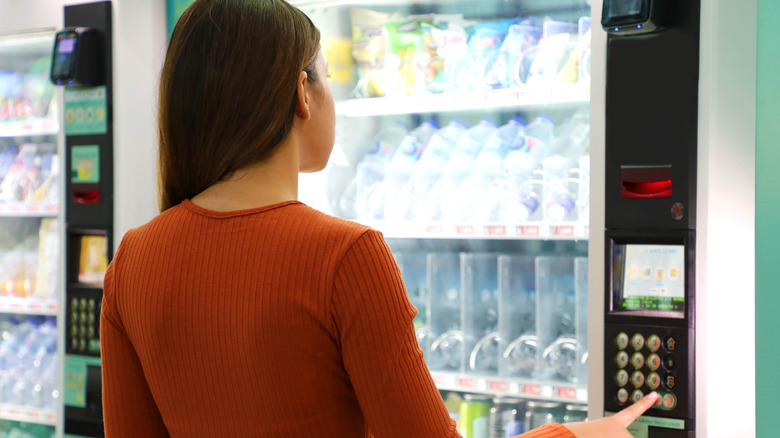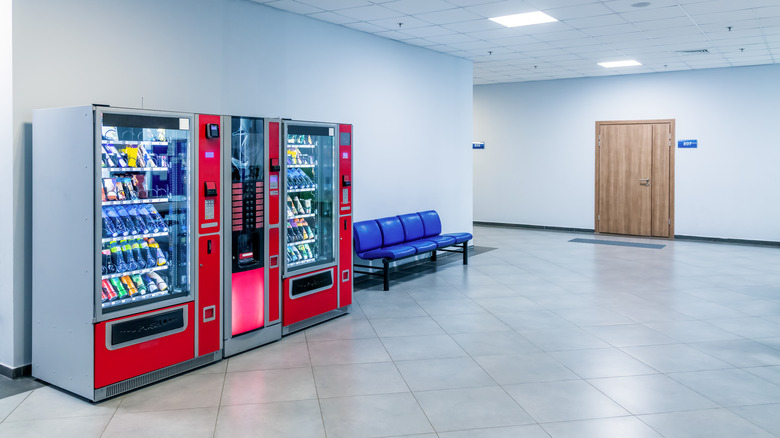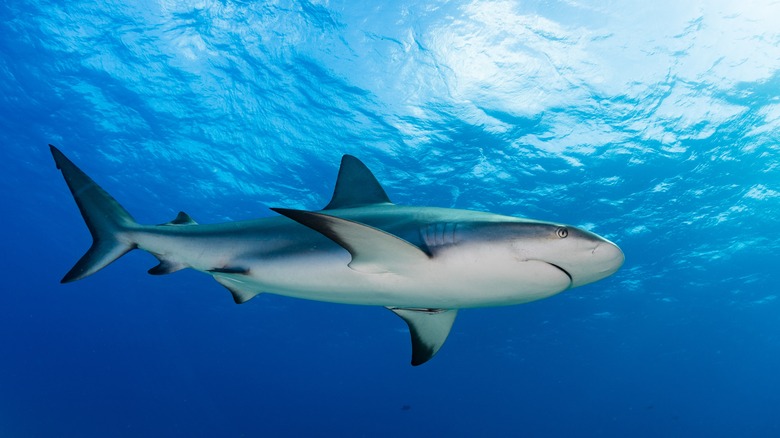Vending Machines Are Actually Deadlier Than Sharks
Stephen Spielberg has a lot to answer for. In 2011, the iconic director spoke with Ain't It Cool News, in a piece to mark the 36th anniversary of the release of "Jaws." During the conversation, talk turned to Spielberg's decision to film the movie on the ocean itself, rather than in the controlled environment of a large studio tank.
The interviewer pointed out something crucial about the movie's enduring fear-factor: "... it's so obviously not just in a pool somewhere. Those creatures actually live and hunt in those waters and almost everybody has been swimming in the ocean, so there's an easy access to that base fear." Generations can vouch for this; how very long it took to go back in the water and the menacing mystique of great white sharks that developed as a consequence.
As National Geographic reports, though, Hollywood theatrics seem to have grossly inflated these majestic creatures' fearsome reputation. At up to 20 feet long and perhaps weighing 2.5 tons, great white sharks are undoubtedly mighty predators, but they rarely show much interest in hunting humans. In fact, they and their fellow sharks are less deadly than vending machines.
That's why you shouldn't shake vending machines
Vending machines are one of the best ideas humanity has ever had. Quick, easy access to a wide range of different foods and drinks, often in places where such access is otherwise limited? Who could object? Sometimes, we don't even know that we have a craving for something until we see it behind that tempting glass casing, but that's just part of the magic of the machine.
The flaw in the "receive money, vend product" concept, though, is that the second part of the transaction goes awry much more often than users would like. We've all watched in dismay as our product of choice jiggles forward and then tragically stops before falling down the chute, and it never stops hurting. Quite understandably, we want the product that's rightfully ours, but shaking the machine until it actually vends isn't the answer. It can, in fact, be fatal.
In 1995, the Consumer Product Safety Commission announced new measures to curb deaths and other harm caused by vending machines. From 1978 until the announcement, 37 people had been killed by the machines in the United States, two of them in 1995 alone. These apparently were only the verified reports, meaning that many more could have fallen victim to the machines while trying to extract products by force (like cheating on an old-fashioned pinball machine). This limited data makes it clear that, in the United States during this period, on average at least two people were killed each year by vending machines.
Sharks remain a danger
Shark Attack Data presents a database of shark attacks (deemed unprovoked) in the United States from 1900 until 2022. It reports that this same period (1978 to 1995) saw, at most, a rolling 10-year average of 1.4 attacks by sharks that were fatal. This same total was recorded in 1982, 1983 and 1984. During those years, the least 10-year average fatalities recorded were 0.8, in 1978, 1979, 1987 and 1992. The annual rolling average fatalities has not reached 1 since 2014 (1.1), and in 2021 hit just 0.4 people killed that year. National Geographic corroborates this, reporting in 2005 that fatal shark attacks in the U.S. work out at around one (not quite 1, with the way the math shakes out) every two years.
In the United States, those fearsome vending machines don't appear to be letting up. In 2015, the National Electronic Injury Surveillance System published new data which suggests, per Vending, that around four people are killed by vending machines annually in the United States.
Of course, such data isn't perfect. The chances and averages of deaths by shark or vending machine will vary an awful lot on an individual basis. Very generally, though, it seems that the latter may very well be more deadly to Americans than sharks.


